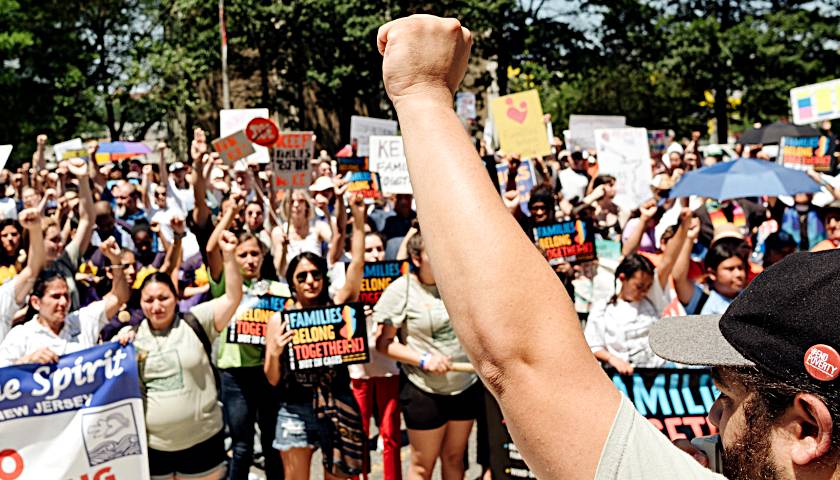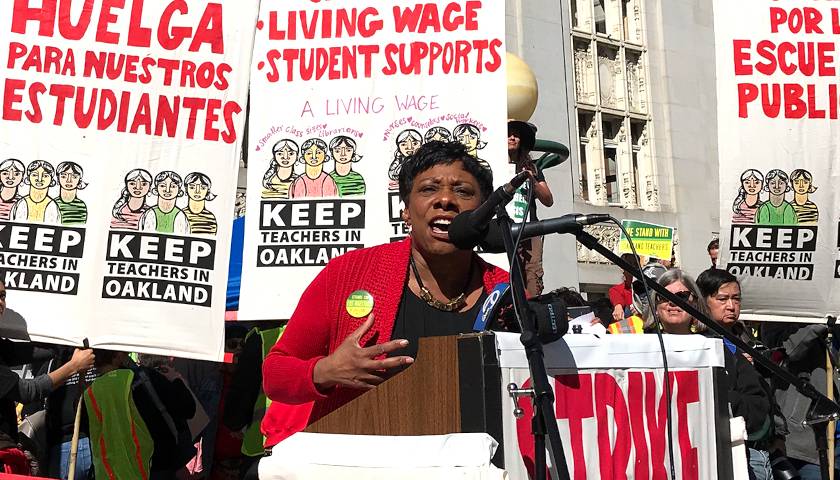by J. Christian Adams and Hans von Spakovsky
Most people in the media don’t want you to believe that election crimes are committed. They say it is easier to find Bigfoot. But election crimes are not a myth, and The Heritage Foundation has been systematically documenting them for years. When those who deny the crimes occur are forced to confront the data, the response sometimes shifts to “It doesn’t matter anyway.”
After all, does it really matter if a single vote is improperly or criminally cast?
A new database created by the Public Interest Legal Foundation shows that one single vote has altered the outcome of hundreds of elections.
First, the fraud.
The Heritage Foundation has a unique Election Fraud Database that provides a sampling of proven election crimes from across the country. So far, the Heritage database has found over 1,400 cases of proven election fraud, and new cases are constantly being added. You can search by state or type of election crime. (The Daily Signal is the news and commentary outlet of The Heritage Foundation.)
The documented cases include people voting for a deceased relative, voting in multiple states in the same election, casting fraudulent absentee ballots, and even foreign nationals casting ballots. There are many ways a person can engage in wrongdoing in connection with an election, hoping to affect its outcome. If you spend time perusing the data, it’s hard to argue credibly that fraud hasn’t had a role in American political history.
Remember, the Heritage database only includes cases that went to completed adjudication, such as a criminal conviction or finding of civil liability. It doesn’t document instances of fraud that were never reported by election officials to law enforcement or that were never pursued by prosecutors.
Part of the problem is that too many prosecutors don’t want to prosecute election fraud. There are numerous reasons why.
We saw this when we both worked in the Voting Section of the Civil Rights Division at the U.S. Department of Justice. With few exceptions, the attorneys we worked with were openly hostile toward prosecuting election fraud. Even raising the issue of election crimes was considered controversial and evidence of “discriminatory” conduct, because they falsely claimed any such prosecution is “voter suppression.” After all, The New York Times tells its loyal readers in the civil service that election fraud is a myth. Biased advocacy organizations that our colleagues admired, such as the Brennan Center, also told them that voter fraud is a myth.
The reluctance to report and prosecute election fraud also extends to local county officials.
Sometimes, the reluctance there is because these election crimes implicate local politics and local political alliances. More often, the county prosecutors have little to no experience in the mechanics of elections, and they’d rather focus on things they do know, like prosecuting burglars and drug traffickers. Of course, they are always resource-challenged, so the hard election crime case falls to the wayside.
But election crimes matter and should be prosecuted.
One vote can decide an election, and does, over and over and over again. The Public Interest Legal Foundation has collected information on hundreds of elections in which there were tied votes—elections where a single vote would have changed the outcome.
Nobody can say election fraud doesn’t matter.
Take Osceola, Iowa’s mayor’s race in 2021. The election ended in a tie. Under Iowa law, the winner of a tied election is decided by a lottery. Both candidates’ names were written on pieces of paper and thrown into a candy dish. Mathew Stoll was the lucky candidate whose name was pulled out.
If that weren’t drama enough, now a grand jury indictment calls into question whether there was a legitimate tie in the first place. An individual has been charged with the crime of election misconduct, so this potentially illegal vote may have caused the race to be decided by a random lottery draw.
Think this story of a tied election is a one-time thing? Tied elections, like election crimes, happen far more often than you think.
The Public Interest Legal Foundation’s Tied Election Database catalogs 589 elections that have ended in ties in the U.S. The vast majority of these elections were within the last 20 years, although this is by no means a complete or comprehensive list. This database just scratches the surface.
These tied elections illustrate that one vote, legal or illegal, can determine the winner of a race.
No one wants an illegal vote to stop the true will of the people from being heard on Election Day.
We should all care whenever an election crime happens. It dilutes every single legal vote.
And sometimes it can determine the winner of an election.
One illegal vote cast is too many. States must get serious about prosecuting election crimes. Otherwise, there is no deterrence to stop people from committing them.
– – –
J. Christian Adams is the president of the Public Interest Legal Foundation, a commissioner on the U.S. Commission for Civil Rights, and a former Justice Department Voting Section attorney.
Hans von Spakovsky is a senior legal fellow at The Heritage Foundation, a former commissioner on the Federal Election Commission, and former counsel to the assistant attorney general for civil rights at the U.S. Department of Justice. He is a member of the board of the Public Interest Legal Foundation.
Photo “People Voting” by liz west. CC BY 2.0.




